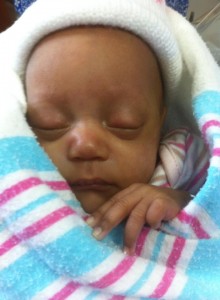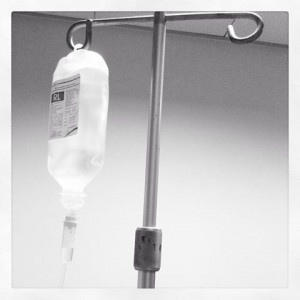This is reposted from the Watoto Kicheko blog.
One of the big expenses that parents (and orphanages!) face in developing countries like Tanzania is the cost of medicines and treatment. Even healthy children need vaccinations and have lots of other health needs that can only be met using pharmaceutical products. Medical costs run high.
You might think that developing countries would pay less for lifesaving medicines and vaccinations, but you would be wrong. Medical costs are often disproportionately high in poorer countries. Pharmaceutical companies negotiate prices in secret, and countries often have to sign a confidentiality agreement in the process.
Medical costs disproportionately high in developing countries
Apparently "Tunisia pays more than France; South Africa pays almost three times more than Brazil." But it's hard to compare what countries like Tanzania pay for medical costs because of the secrecy surrounding this industry, all cloaked by vague claims about 'commercial sensitivity'.
 There's a vaccine for pneumonia, but it is too expensive for most people in developing countries, and even for NGOs operating in the majority world. Pfizer and GSK, who spend massive amounts on publicity, have failed to negotiate openly and fairly.
There's a vaccine for pneumonia, but it is too expensive for most people in developing countries, and even for NGOs operating in the majority world. Pfizer and GSK, who spend massive amounts on publicity, have failed to negotiate openly and fairly.Medical costs addressed by MSF campaign
Medicins Sans Frontieres (Doctors Without Borders) are currently running a campaign called #AskPharma to draw attention to these inequitable practices. An estimated one million young children die of pneumonia every year and Medicins Sans Frontieres want to start by getting the price down to $5 per child for the three shots they need.
This is still a large amount of money and could easily buy the food for ten meals in Tanzania. Conditions such as TB and HIV infect and kill far fewer children acute respiratory infections in this country, yet the medical costs for these are often covered, or partially covered, by international intitives (albeit still at an excessive price).
Top deadly diseases of children and infants
The top killer of children in developing countries is acute respiratory infections. Other big killers are malaria and diarrheal conditions, both of which are preventable. It should be cheap to prevent them, but diarrhea kills another 1.5 million children, globally.
The World Health Organization (WHO) reminds us that "About 44% of deaths in children younger than 5 years in 2012 occurred within 28 days of birth – the neonatal period. The most important cause of death was prematurity, which was responsible for 35% of all deaths during this period."
Many Watoto Kicheko children were born prematurely, and are far more susceptible to pneumonia and other  preventable disease as a result. This issue is very close to our hearts.
preventable disease as a result. This issue is very close to our hearts.
 preventable disease as a result. This issue is very close to our hearts.
preventable disease as a result. This issue is very close to our hearts.
Pneumonia is a horrible sickness, I have had it myself. But I was lucky to be in the UK, where medical costs and treatment are covered by national insurance. Few people die of pneumonia in the UK, or other wealthy countries.
Watoto Kicheko children face high risk from pneumonia
But it is especially common among children who are weakened by malnutrition, other childhood illnesses, lack of breastfeeding, etc. Therefore, it is something that we at Watoto Kicheko are always watching out for.
Please help raise awareness by supporting the Medicins Sans Frontieres campaign. Doing so will also help the children at Watoto Kicheko, by helping to reduce medical costs.

No comments:
Post a Comment